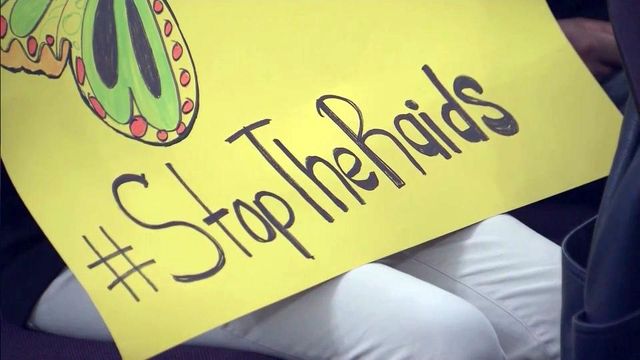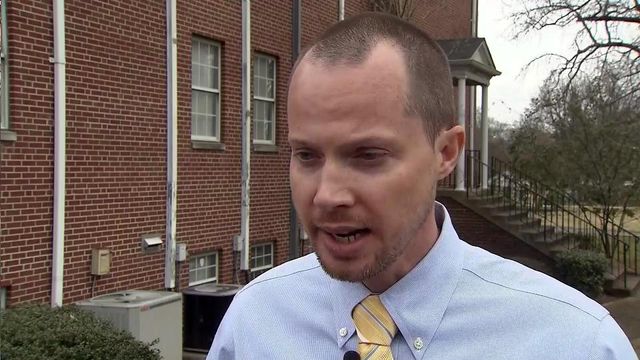ICE: No immigration enforcement carried out at schools
After weeks of protest over the detention of several young North Carolina men, Immigration and Customs Enforcement officials are working to clear up what the agency calls confusion in the community.
Posted — Updated"Bottom line, ICE does not conduct enforcement at schools," spokesman Bryan Cox said. "We will not conduct enforcement at schools."
Wildin "David" Guillen Acosta, 19, was picked up by ICE agents while on his way to Riverside High on Jan. 28. He has since moved through detention centers in Raleigh and South Carolina and is now being held in southern Georgia, where he awaits deportation.
Guillen Acosta's arrest sparked fear among other undocumented youths in the Triangle, and many families stopped sending their children to school in case ICE agents were waiting for them.
Cox said ICE considers school a "sensitive location," and churches and hospitals also fall under that designation.
A native of Honduras, Guillen Acosta crossed the U.S.-Mexico border illegally in 2014 to escape gang violence. He appeared before an immigration judge in Charlotte when he arrived in the U.S. two years ago, but he never returned to immigration court for fear of deportation. That decision, ironically, prompted a deportation notice to be issued for him last March.
Cox said ICE agents are simply carrying out their duty when they take Guillen Acosta and other teens into custody.
"The immigration judge has ordered them removed from the United States. ICE is the enforcement arm of immigration, and these individuals meet our enforcement priorities," he said.
Secretary of Homeland Security Jeh Johnson in January ratcheted up immigration enforcement on anyone who came to the U.S. illegally since 2014, targeting many of the more than 50,000 children and young adults who crossed into the U.S. alone from Central America to escape violence in their home countries.
"The majority of ICE removals are individuals who committed a crime," Cox said. "That being said, the secretary’s guidance in the priorities are that recent border crossers – we call them border security threats – individuals who are recent arrivals, who do not have ties to the United States (and) have been here a short amount of time are considered an enforcement priority."
ICE does have the authority to exercise discretion in Guillen Acosta's case, meaning officials could choose not to deport him.
"Every individual who comes into ICE custody, that case is reviewed by one of ICE’s field office leaders," Cox said.
Guillen Acosta's case has been reviewed, and the agency is moving forward with deportation based on the priorities established this year, Cox said.
The Durham Human Relations Commission, the Durham City Council and the Durham County Board of Education have all backed resolutions calling for ICE to release the area teens to to halt the raids used to pick them up.
"ICE does not conduct indiscriminate raids or sweeps that target individuals indiscriminately," Cox said. "ICE conducts targeted enforcement.
"If ICE goes into a location looking for a specific individual," he continued, "individuals who do not meet ICE’s enforcement priorities would not be taken in to custody."
Guillen Acosta has said he fears gangs will kill him if he returns to Honduras. Several Riverside High teachers echoed that concern, saying the teen poses no threat in the U.S.
One human rights group claims that at least 90 deported youths have been killed after being sent back home.
• Credits
Copyright 2024 by Capitol Broadcasting Company. All rights reserved. This material may not be published, broadcast, rewritten or redistributed.






